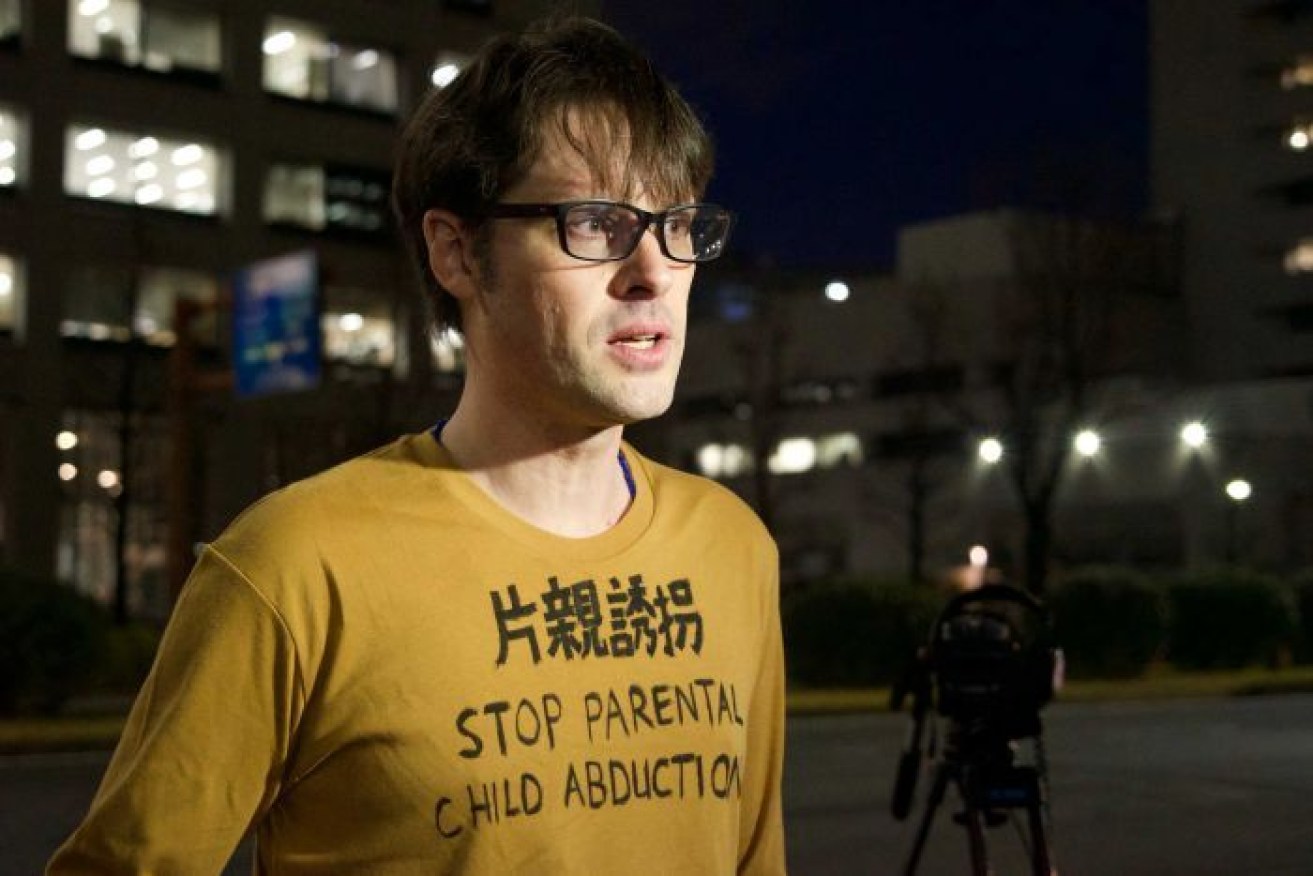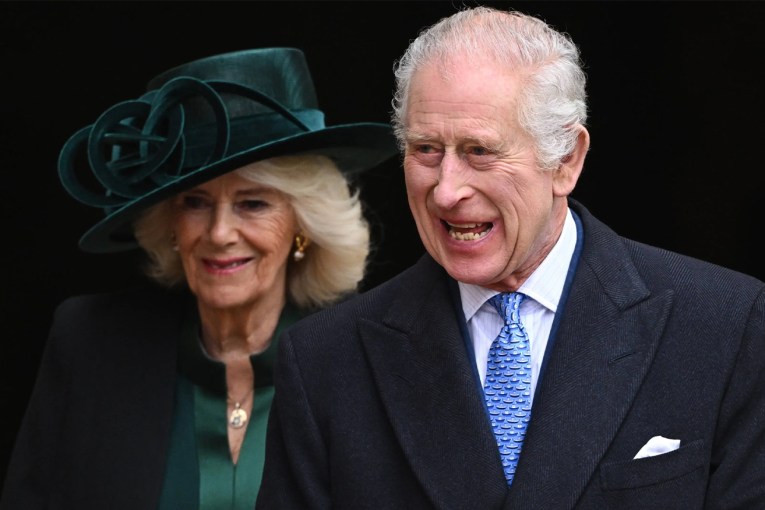Australian journalist jailed over search for his children in Japan, receives suspended sentence

Australian journalist Scott McIntyre said he has made numerous requests to see his children. Photo: ABC
An Australian man detained for more than 40 days and convicted of illegally entering an apartment building in Tokyo said he was trying to find out the location of his children, who were taken by their Japanese mother.
The case has drawn wide attention to the difficulties in Japan faced by parents who lose access to their children after their partners take them away.
While the family was living in Tokyo in May last year, Scott McIntyre’s wife told him she was taking the children to stay with their grandparents.
The 46-year-old has not seen them since.
The children were removed from their school, their phone numbers changed and their mother switched her email address.
“I’ve been refused any access. I’m not allowed to speak to the child. I’m not allowed to know what school they’re attending. I’m not allowed to know if they’re alive or dead,” he told the ABC.
Mr McIntyre said he had made numerous requests to the police and his wife’s lawyers – the two are going through a divorce mediation – to let him know whether the children are safe, but the requests were ignored.
In October, he said in the aftermath of a devastating typhoon in Japan, he trespassed into the common area of his estranged in-laws’ apartment complex trying to find more information about his kids.
He said he had followed another resident inside, checked to see if there were any of his children’s things outside the door of his in-laws’ apartment and left.
A month later he was arrested and put into detention for 45 days, with the lights on 24 hours a day.
“[The constant light] makes everybody walk around like a zombie,” he said.
“You’re not aware of your own thoughts – you don’t have clarity in thinking.
“I was interviewed on every occasion without a lawyer being present.
“I was held with several murderers, an armed robber, a rapist, a pedophile and several gangsters.”

Mr McIntytre claims he last saw his children in May last year. Photo: Supplied
In the Tokyo District Court, he received a six-month jail sentence suspended for three years.
The judge said the reason for the sentence was that Mr McIntyre had used the building’s intercom on many occasions to contact his estranged in-laws, despite police asking him to stop.
He said the criminal responsibility should not be taken lightly – and the case warranted more than just a fine.
“However, the area was a common area and [McIntyre] was not destructive – and has no criminal record,” the judge said.
“If you violate the law again within three years, your suspension will be revoked – and if you go back to the apartment and stalk or harass, it will also be revoked.”
Mr McIntyre fears this decision will harm his chances of seeking custody in future family court proceedings.
At the court hearing he was surrounded by supporters — many of whom had children also taken from them without consent.
He was wearing a shirt that read “Stop Parental Child Abduction” in both English and Japanese.
His parents – who were in Japan for the decision – said they couldn’t believe he had been detained for so long.
“To be honest, it’s just incredible that he was ever [detained] in the first place, for walking through a door,” Laurie McIntyre told the ABC outside the court.
“In Australia that’d be a minor misdemeanour, slap on the wrist, 100 dollar fine go away – over here, it’s months in jail before even get a chance to [explain yourself]… it’s a crazy system.”
No laws surrounding parental abduction

Mr McIntyre was surrounded by supporters who had children taken away from them in court.
Photo: ABC
Parental abduction and alienation have long been acute problems in Japan, with children often losing contact with the non-custodial parent after an acrimonious split
Unlike most developed countries, Japan has no joint-custody system after divorce, and court-ordered visitation rights are often ignored with impunity.
For families with a non-Japanese parent, the options are even harder – with language and cultural barriers proving difficult to navigate.
It’s difficult to estimate the number of children taken by one parent without consent, but Japanese politician Seiichi Kushida said the hundreds of cases that are known about – including around 50 Australians – are just the tip of the iceberg.
“The number is very big,” he said.
“In Japan, when the parents separate, there is a custom to take the children with them – it only manifests when one parent asks the court or police for help.
“There is a part where Japan still doesn’t think this is an issue.”
Fourteen parents have already sued the Japanese Government claiming that the absence of laws to facilitate access to their children was unconstitutional.
A United Nations treaty signed by Japan stipulates children should have the right to maintain bonds with both parents.
But a Tokyo District Court ruling in November last year found that treaty was “merely an agreement to respect” those rights, but had no binding power.
“Japan lacks a strong intention to [uphold parents’ rights]. It’s receiving criticism internationally… but these laws are so old [it’s not a well-known issue],” Mr Kushida said.
“Other countries like America and Germany used to only have single-custody, but they changed their laws 30 years ago.
“Japan needs to keep up.”
Much of that international criticism is coming from Europe.
More than 20 EU ambassadors last year wrote to the Japanese Government asking the country to respect the right of children to see their parents.
French President Emmanuel Macron said the situation of several French fathers of abducted children was “unacceptable” and both he and Italy’s Prime Minister Guiseppe Conte have raised the issue with Japanese Prime Minister Shinzo Abe.
‘We’re never going to see those kids again’

The children’s grandparents say they’re resolved to the possibility of never seeing their grandchildren again. Photo: ABC
Mr McIntyre’s parents said they found the prospect of not being able to see their grandchildren again “hard to understand.”
“We’re resolved to the prospect of never seeing them again,” Laurie McIntyre said.
It’s not clear why Mr McIntyre’s wife left him taking their daughter and son, now aged 11 and 7.
She has yet to respond to the ABC’s request for comment.
Mr McIntyre and his family moved to Japan in 2015 after he was sacked from SBS for expressing a series of controversial views about Anzac Day.
He tweeted on Anzac Day that “‘brave’ Anzacs in Egypt, Palestine and Japan” were involved in “summary execution, widespread rape and theft”.
He sued the broadcaster for discrimination and the parties settled in 2016.
–ABC








